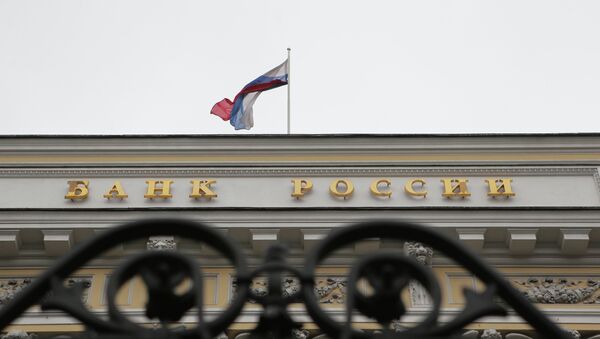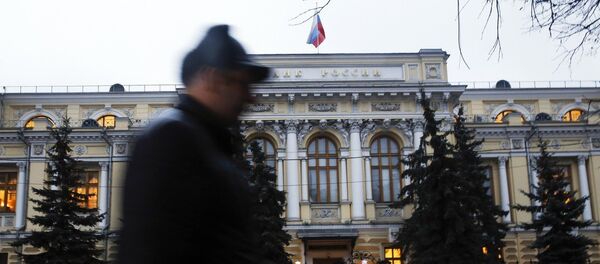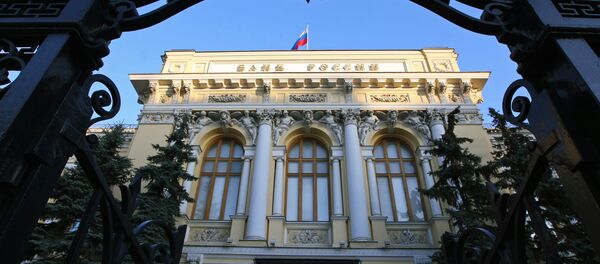“Real wage decrease and a slowdown in retail lending growth will result in lower consumer demand. The negative impact of deteriorated external conditions will be only partially mitigated by the exchange rate dynamics,” the press release reads.
Low oil prices and the inaccessibility of foreign financial markets to Russian borrowers are the main external conditions behind the economic slowdown, the bank said.
Annual inflation is likely to rise in the coming months as the ruble's depreciation will continue affect prices of goods and services, the bank added.
After this, inflation is expected to fall below 10 percent in January 2016 as the economy “gradually adjusts to changing external conditions and the impact of the exchange rate dynamics on prices exhausts,” according to the press release.
US and EU sanctions against Moscow over its alleged involvement in the Ukrainian crisis have barred a number of Russian banks from taking long-term and mid-term loans on Western markets, while plummeting oil prices have caused the ruble to lose nearly half its value against the dollar since summer.
On Wednesday, the Russian government presented an anti-crisis plan set to stabilize the country's economy. The plan stipulates deep spending cuts and aims to balance its budget by 2017.




